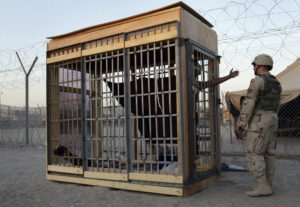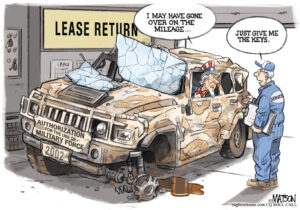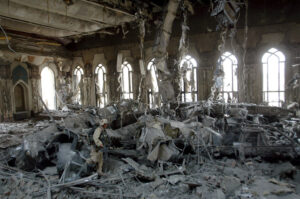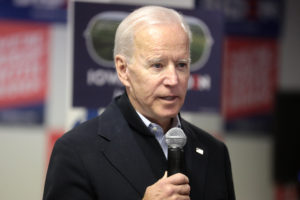Bush’s Loose Ends
George W. Bush's presidency seems exhausted and irrelevant, but that's a dangerous illusion.George W. Bush’s presidency seems exhausted and irrelevant, but that’s a dangerous illusion. The Decider remains in command of the world’s most advanced and powerful military force, and he has just a few months to tie up what he might consider loose ends — a thought sobering enough to send Amy Winehouse to rehab.
We can only hope he considers his “denuclearization” agreement with North Korean dictator Kim Jong Il a sufficient legacy. Assuming the deal keeps North Korea from making more nuclear weapons, Bush will be 1 for 3 in dealing with his Axis of Evil. (If you ignore the fact that Pyongyang went nuclear on Bush’s watch, that is.)
As for the other Evils, we know the story: Iraq is a bloody quagmire that has claimed more than 4,000 American lives, and Iran is more powerful than at any time since the fall of the shah. Bush’s legacy on the world stage is defined by Abu Ghraib, Guantanamo, secret CIA prisons and waterboarding. His successor will face an enormous task in restoring America’s image and moral standing.
But if Bush is chastened by failure or troubled by doubt, he doesn’t show it. He has said that he expects to be vindicated by history. The danger is that he will decide to give historians more fodder by taking care of unfinished business — especially business that the next president might want no part of.
The biggest question is whether Bush will do what John McCain once jokingly suggested, to the tune of an old Beach Boys hit: “Bomb bomb bomb, bomb bomb Iran.” Bush has been categorical in saying that Iran cannot be allowed to develop nuclear weapons, even as the Iranians have defiantly expanded their nuclear facilities and sped production of the enriched uranium that would be needed to fuel a bomb. Experts do not believe Iran is close to actually producing a nuclear weapon, but do not doubt the Iranians could eventually succeed. President Mahmoud Ahmadinejad has said repeatedly, if not convincingly, that Iran’s nuclear program has strictly peaceful aims.
Will Bush take the chance that our next president — especially if it’s Barack Obama, but even if it’s McCain — might not see the Iran question in such black-and-white terms? The New Yorker magazine reported Sunday that the Bush administration told Congress last year that it planned to spend up to $400 million to expand covert operations inside Iran — a campaign aimed at destabilizing the government and gathering intelligence on the nuclear program. The administration quickly denied that U.S. forces were “operating across the Iraqi border into Iran,” but did not directly address the main thrust of the story.
It’s not hard to fathom the ominous, potentially catastrophic implications of a U.S. attack on Iran’s enrichment plants and other nuclear installations. Meanwhile, on another front, Bush is working as hard as he can to cement an agreement on the long-term status of U.S. forces in Iraq before the new president takes office. The basic issue being negotiated appears to be whether the United States military will retain much of the authority and responsibility of an occupying power, even as it ostensibly surrenders control to the Iraqi government.
Bush met with Iraqi President Jalal Talabani at the White House last week, and Talabani said later that he hoped an agreement would be completed “very soon.” The Bush administration, as always, takes the position that the president alone has the power to seal a deal, with no approval by Congress required. The Iraqi government has shown no great sense of urgency about the agreement; it’s Bush, a lame-duck president with an approval rating of less than 30 percent, who is pushing hard for a pact that could tie his successor’s hands.
A few months ago, Bush vowed to strive for an Israeli-Palestinian peace accord before he leaves office. Even he must realize by now that this isn’t likely to work out. There’s no shame in this failure — it’s not as if his predecessors had done much better, with the exception of Jimmy Carter and the Camp David accords — but he is still left in search of an unalloyed foreign policy achievement upon which future historians can agree.
Here’s my suggestion, which he probably won’t take: Finish the job in Afghanistan, quash the Taliban’s resurgence, renew the fight against al-Qaida and track down Osama bin Laden. As I recall, he’s the one who attacked us.
Eugene Robinson’s e-mail address is eugenerobinson(at)washpost.com.
© 2008, Washington Post Writers Group
Your support matters…Independent journalism is under threat and overshadowed by heavily funded mainstream media.
You can help level the playing field. Become a member.
Your tax-deductible contribution keeps us digging beneath the headlines to give you thought-provoking, investigative reporting and analysis that unearths what's really happening- without compromise.
Give today to support our courageous, independent journalists.






You need to be a supporter to comment.
There are currently no responses to this article.
Be the first to respond.